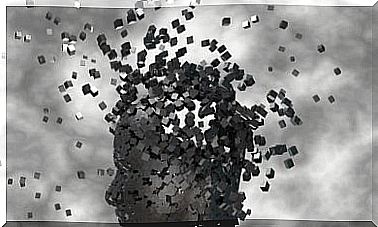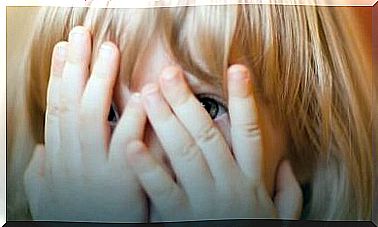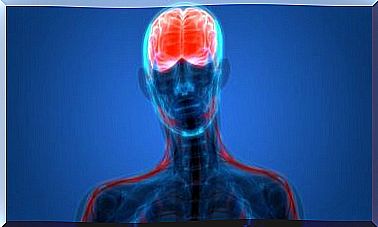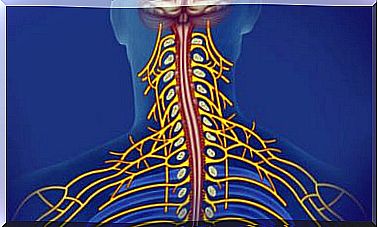Why Does It Always Happen To Me?

It’s like Murphy’s law. If there is a minimum probability that something bad will happen, it will happen and not only that, whatever that disagreement may be, it will fall on me. It is as if the entire universe conspired against me: failure in my affective relationships, my plans always go to pieces and I am little more than a magnet for bad luck … why does everything happen to me?
Stephen Hawking used to say that life would be tragic if it weren’t funny. Let’s face it, there are times when we feel that way. It seems ironic and it sounds like a joke, but there are times when everything seems twisted and there is no way to make sense of all the disagreements that happen to us. It is when the succession of “many few” end up forming a “much” and we no longer know which way to go.
In those moments of our existence, when everything seems to go against us, when it is necessary to become aware of something: we must stop and reflect. Because what is actually happening is that emotions are overwhelming our thoughts and focus.
It is not that “everything is happening to you” it is that you are also making it possible with your attitude. Let’s analyze this question a little more.

Why does it always happen to me?
It has happened to all of us on more than one occasion. Sometimes fate orchestrates its strings against us and, suddenly, our car breaks down, we are locked in an elevator, we receive a notification from the property and there is a strike by controllers and we cannot catch that plane that we take on vacation … Why does it always happen to me? We say to ourselves with resignation.
Bad luck (in a way) exists, just like good luck. However, both spheres are promoted by ourselves with our mental focus, with our own actions and disposition. Others, on the other hand, it is simple chance that brings happiness or doom.
Now, sometimes there can be a very specific fact that is psychologically exhausting. There are people who take for granted that theirs is a concatenation of catastrophic misfortunes.
Far from sounding ironic or even funny, there is evidence and that is that this type of attributions lead to the classic learned helplessness. That is, they are those situations in which one thinks that he no longer has control over anything and that whatever he does, it will always bring him the same result : disappointment, error and suffering.
Behind the classic expression “why does everything happen to me?” Deeper realities are often hidden that we must understand. We analyze them.
Heider’s attribution theory
Fritz Heider was an Austrian psychologist known for his contributions to the understanding of interpersonal relationships. His approach was related to the Gestalt school and the explanation he gave us about why people interpret things the way we do is not without interest. He delved into aspects such as common sense and that area of human behavior that he called naive psychology.
Now … what did Heider tell us about the reasons why we sometimes think that everything bad happens to us? According to the author, this is due to the type of attribution that we apply to the events that happen to us or that surround us.
For example, there are people who say they are very unlucky in love. They always suffer disappointments, establish dependency relationships and even fall in love most of the time with narcissistic people. Why does it always happen to me? they lament. They attribute these experiences to bad luck, to fatal fate.
However, they are rarely able to do an exercise of reflection to understand that, perhaps, they are responsible for this happening. In reality, it is not life that punishes them with this love sickness. In reality, they are the ones who do not learn from experience.
This external attribution is what makes us lead to helplessness, to think that everything is beyond our control.

Why does it always happen to me? Learn to change focus
Many of us go through those vital times when bad luck does not accompany us. We feel victims of circumstances, unexpected events or events that do not seem fair to us. As the psychologist Albert Ellis pointed out in his book The New Guide to a Rational Life , people are very prone to interpret many things that happen to us in an irrational way.
However, we must be clear about one aspect that he himself highlighted: there is something more important than what happens to us and that is the way we interpret what happens to us. What does this mean? It implies that if I am fired from my job, it will not do me any good to regret it and point out that why it always happens to me, why I have such a streak of bad luck.
This approach is unhelpful, unhelpful, and immobilized. What’s more, it places us in that area where we assume that we have no control over what happens to us. What good is this kind of thinking? Absolutely nothing. Therefore, we must eliminate from our mind that regret, that complaint about why unpleasant things always happen to us. Ideally, assume the following:
- In our day to day good things and less good things will happen. They are all learning opportunities.
- When something negative happens to us, we cannot remain paralyzed. You have to reflect and act. The proactive behavior is the one that is launched to generate new options after a failure, after a disappointment or a mistake. We must learn from what happened and act to transform our reality in the direction we want.
- It is true that there are many things that are beyond our control. However, there are others over which we do have power: motivation, attitude, skills, will and commitment.
These last factors can move the world. Let us not doubt it. Within us there is a force that enables us to work firmly on our happiness and well-being. It is only about thinking well, thinking better and eliminating negativism and the shadow of helplessness.









